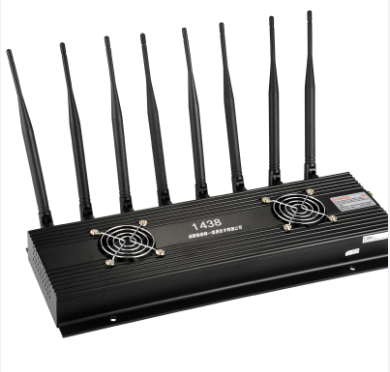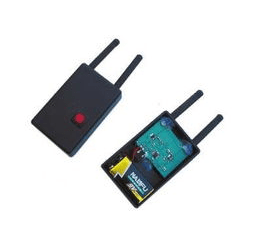
Although the National Labor Relations Board (NLRB) had previously upheld an employer policy that prohibited phone usage by employees at work due to safety and security reasons, the Federal Communications Commission (FCC) recently imposed a fine against an employer for utilizing a signal jammer device to prevent employees from using their phones while on the job.
Signal jammers, which interfere with authorized radio frequencies and communications, violate the federal Communications Act of 1934, as amended, with limited exceptions available only for government use. The use of jammers poses a significant threat to public safety by preventing people from making emergency calls, disrupting the communications of first responders, and interfering with aviation and marine safety communications.

The Communications Act of 1934, as amended, forbids the use or operation of any equipment intended for radio transmission in the United States unless authorized or licensed to do so. Any action that interferes with or causes interference to any radio communication licensed or authorized by or under this chapter or operated by the United States government is considered a willful or malicious violation of the Act. This includes the use of signal jammers which have been known to block or disrupt legitimate communication channels, posing significant risks to public safety.
The FCC’s prohibition on the use of jamming devices is further reinforced by the Communications Act of 1934, which also outlines the consequences for those who violate the law. Any person, including employers, caught using these devices without proper authorization or licensing could face hefty fines and other penalties. In addition, interfering with authorized communication systems, especially those used by first responders, could result in criminal prosecution.
The use of signal jammers by employers to prevent employees from using their phones at work is not only illegal but also dangerous. It is important for employers to find other means of enforcing workplace policies without jeopardizing public safety. Employers must comply with the law and ensure that any communication devices they use are authorized and do not interfere with essential communication channels.

Additionally, the Act provides that “[n]o person shall manufacture, import, sell, offer for sale, or ship devices or home electronic equipment or systems, or use devices, which fail to comply with regulations promulgated pursuant to this section.”[6] Such regulations provide that radio frequency devices must be authorized by the FCC before operation.[7]
Accordingly, jamming devices cannot be certified or authorized because their primary purpose is to block or interfere with authorized radio communications. Their use would compromise the integrity of the nation’s communications infrastructure. Therefore, jamming devices cannot comply with the FCC’s technical standards and cannot be operated lawfully in the United States.
The FCC Enforcement Bureau investigated a Texas warehouse company after receiving a complaint from AT&T about signal interference. The investigation revealed that the business owner had been using a signal jammer to prevent her employees from using mobile phones while at work. The owner admitted to using the device despite knowing it was illegal and that her son had been warned by an AT&T representative about the illegality of using jammers.
During the investigation, the business owner refused to provide the location of the jamming device, claiming that it had been disposed of. She also declined to retrieve the device for the FCC agent. Instead, she offered to sell the device to the agent, who declined.
The FCC’s actions against the business owner demonstrate the agency’s strict stance on illegal signal jamming. The use of such devices poses a significant risk to public safety, as they can disrupt legitimate communication channels, including emergency services. The owner’s admission to using the jammer, despite knowing it was illegal, underscores the importance of educating the public about the dangers of using jammers and the legal consequences associated with their use.
Employers must understand that there are other methods of enforcing workplace policies without resorting to illegal practices. Signal jamming places the public at risk, which is why the FCC has taken such strong action against the Texas warehouse business. The FCC will continue to investigate and prosecute those who violate the Communications Act of 1934, as amended.
Following its investigations into a Texas warehouse business’s use of a signal jammer and subsequent interference to AT&T’s authorized communications, the FCC Enforcement Bureau imposed a $22,000 forfeiture order on the business. The order consisted of a $10,000 fine for operating without authorization, a $7,000 fine for causing interference to authorized communications, and a $5,000 fine for egregious conduct.
The business, however, appealed the fine to the full commission, but the FCC upheld the order on January 27, 2022. This decision highlights the FCC’s commitment to imposing strict penalties on those who violate the Communications Act. Moreover, it emphasizes the importance of complying with federal regulations when operating communication devices to ensure public safety and security.
This case serves as a warning to employers and individuals who may be tempted to use signal jammers or other prohibited communication devices. The FCC will continue to investigate and enforce its rules and regulations to prevent the unauthorized use of such devices, which can cause significant harm to authorized communications and public safety. The agency is committed to promoting lawful use of communication devices to ensure the integrity of the country’s communication networks.